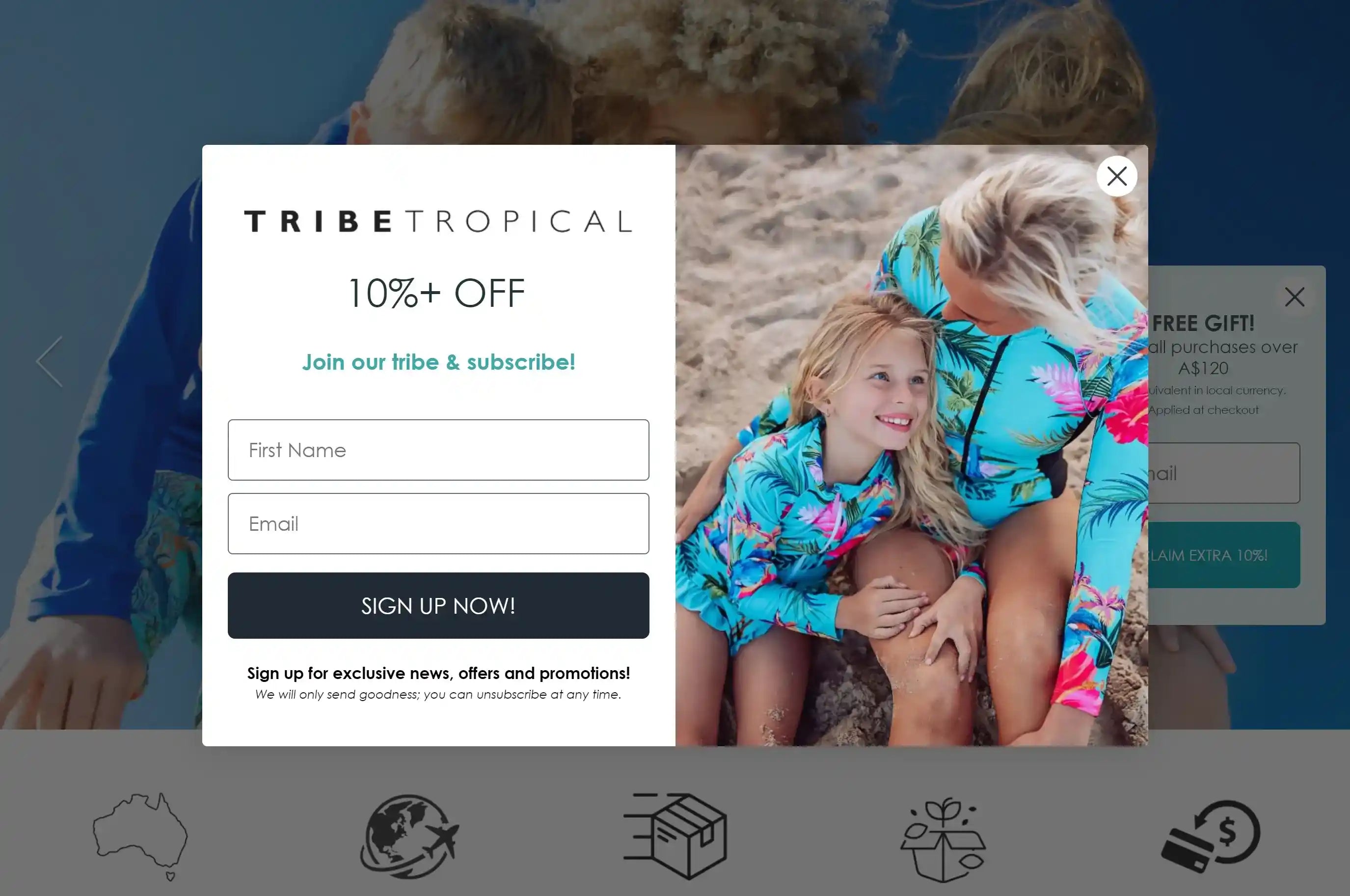5 things to NOT do in the SUN!
Most people, especially kids, love to spend time outside playing in the sunshine – it is good for the soul! However it is up to us as adults to protect our young from serious damage that can be caused by over-exposure to the sun’s harmful UV rays. Sun protection is so very important.
The damage mightn’t show until later in life so we can be easily tricked into thinking that a sunburn here and there won’t cause any harm – every sunburn hurts…short-term and long-term!

Fun in the sun is good for us all but we have to wise about how we do it! Image: © Tribe Tropical
Next time you head out into the sun, it might be worth taking the following points into consideration:
1. Do not assume that a higher SPF rating gives extra protection and therefore allows extra time out in the sun.
-
SPF30 sunscreens filter approximately 96.7% of UV radiation.
-
SPF50 sunscreens filter approximately 98% of UV radiation.
Regardless of the SPF rating of a sunscreen it must be reapplied every two hours, especially after swimming, sweating and/or towel drying… and to our next point:
2. Do not apply sunscreen only once a day!
Further to a recent study, experts are now saying that sunscreen should be applied at least two times before going out in the sun; one thin layer of cream is not going to provide enough cover and protection from UV rays. Sunscreen also needs to be applied generously – most of us miss approximately 20% of our exposed skin when we apply sunscreen.

No sunscreen is a suit of armor! Sun protection is important for the whole family. Image: © tribetropical
3. Do not make the assumption that we don’t burn on cloudy days, cool days, or in the early morning or late afternoon sun...because we do!
It is UV rays, not temperature, that cause sun damage!
The sun’s UV rays can penetrate through clouds so even though we mightn’t feel a burn from the sun, we can still be susceptible to sunburn.
The same applies to windy days; just because it’s windy doesn’t mean we can’t burn – according to the Cancer Council there is no such thing as ‘wind burn’ so if you look red after a day on a windy beach then it’s more likely that the redness came from the sun, not from the wind.
This also applies to everyday activities such as driving a car – we shouldn’t just protect with sunscreen when on the beach!
We can burn through car windows, when sitting by a window in the sun, and when hanging washing; if we really want to be UV-smart and avoid skin cancer, then we need to be mindful of every minute spent exposed to the sun’s dangerous rays.
Sunscreen should be applied whenever we’re exposed to the sun; even on cloudy days up to 80% of UV rays can penetrate our skin!

Image: ©tribetropical
4. Do not use sunscreen alone for full sun protection.
Using a sunscreen is just one of the measures you should use to protect your skin each day. Medical experts and dermatologists advise to use other forms of protection also; these include:
-
-
-
Wearing UPF50+ sun-protective swimwear when in the water.
-
Wear a wide-brimmed hat made from UPF50+ fabric.
-
Wear sunglasses that block UVA & UVB rays.
-
Wear a zinc-based sunscreen on areas that are exposed to the sun.
-
-
5. Do not protect only your face in the sun.
Beach-goers tend to protect their face from the sun but not the rest of their body – how many of us put sunscreen on our legs & feet!? One of the most common melanoma sites for women is on the legs, and for men on their backs and necks.
Bob Marley died from a melanoma on his toe, so our feet need to be protected also. We have to protect our whole body from the sun’s UV rays!

Image: @tribetropical
What can we do to protect ourselves and our families?
The Cancer Council’s free ‘Sun Smart’ app is a handy tool to use when heading outdoors as it will indicate when UV levels are high and sun protection is advised.
Tribe Tropical's range of sun protective swimwear and wide-brimmed hats help to protect people of all ages in the sun.
We wish you lots of sun-safe fun in the sun!
Author: Emily Gradon
This article is for information purposes only, always consult your medical professional for any concerns relating to sun exposure.
When should children get their skin checked for skin cancer?
While skin cancer is more commonly diagnosed in adults, it's important to note that it can also affect children. Teaching children about the importance of sun safety early on is a vital step in keeping them safe in the sun. Read on to find out age recommendations and precautions.
Best Swimwear for Babies and Toddlers
Spending valuable time with your children at the pool or at the beach on a hot day can be relaxing, rejuvenating and a great way to make special memories! Sadly it does come with risks however, through exposure to invisible ultraviolet rays from the sun.
Though sunscreen is a wonderful invention, it is not recommended for use on babies under six months of age, and sunscreen alone is not sufficient for adequate UV protection of young skin.
What to look for when buying a beach hat!
When it comes to sun protection, a wide-brimmed beach bucket style hat is one of the most important accessories we can own to help protect ourselves and our families from harmful UV rays. What features should they have? Read on for more.







